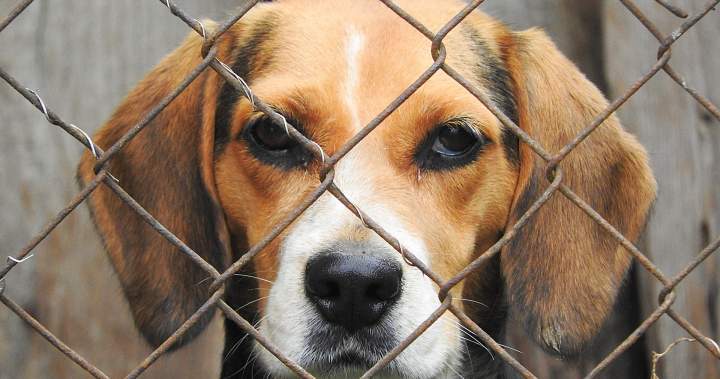Following an announcement that they would stop using dogs in medical research, St. Joseph’s Health Care London says it is working with another agency to potentially re-home the animals.
Last week, the hospital announced the immediate stop of use of dogs in medical research after public backlash over a report that claimed they were killing puppies for human heart research.
The report from the Investigative Journalism Bureau into researchers inside St. Joseph’s Hospital’s Lawson Research Institute initially prompted the hospital to defend its actions, writing in a statement that its research “adheres to the highest standards of, and is in compliance with, all scientific and ethics protocols.”
Soon after, however, the hospital released a statement that said following consultations with the province, it would immediately cease research studies involving dogs.
St. Joseph’s president and CEO, Roy Butler, said in a statement that they are working on a transition plan to minimize the impact on their researchers and their work.
“The dogs involved will remain in our facility under the care of animal care specialists while we work with the Animal Care Committee at Western (University) to explore opportunities for rehoming them,” Butler said.

Get breaking National news
For news impacting Canada and around the world, sign up for breaking news alerts delivered directly to you when they happen.
An annual report released by the Canadian Council on Animal Care in 2023 found that more than three million animals are being used in science by certified CCAC institutions. Of those animals, 16,000 are dogs. But laboratories are not required by law to report animal use, so animal rights advocates say that number is thought to be higher.
Butler emphasized that St. Joseph’s animal research testing was highly regulated and undertaken with compassion, respect and the highest standard of care, resulting in “major strides in cardiac care and treatment.”
“There is an ethical weight in involving animals in research, and we carry that responsibility seriously and with humility. Whenever we can make scientific discoveries without involving animals, we do,” Butler said.
While it is still unclear what the transition of the dogs will look like, the Beagle Alliance — which rehabilitates and re-homes former research animals — is pushing for the dogs to be put in their care.
“We have reached out to St. Joseph’s and kindly asked that the dogs be released to us, and Animal Justice has asked that dogs be released to us because we are the experts,” said the organization’s founder and executive director Lori Cohen.
The Beagle Alliance reports it has helped to move more than 100 dogs from research facilities into loving homes.
“We have a support system of coaching and training for our fosters, for the dogs in due time when they’re ready,” Cohen said.
Cohen said late Monday in an Instagram post they are in talks with the hospital and may be assisting them going forward. She says the dogs can be rehabilitated.
She says she still gets updates on former dogs they have rescued playing with a toy for the first time or learning to bark again, “becoming the dogs that we know them to be — family members and best friends.”
“These dogs are very forgiving, very resilient and teach us a lesson on how to move forward, how to forgive, how to leave the past behind, and they truly start decompressing and really forgive the very species who harm them.”
Read the full article here

